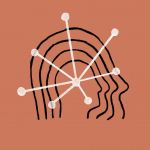Virtual IT company with AI agents managed only a quarter of tasks

Researchers from Carnegie Mellon University conducted an unusual experiment. Creating a virtual IT company where AI agents worked instead of people. The results turned out to be quite interesting, and now I’ll tell you what came out of it.
The team of scientists launched an environment called The Agent Company. A virtual software development company. In it, artificial intelligence agents had to perform all the same things that a regular IT specialist does. They had to write code, use the terminal, search for information in the browser, work with Google Drive. As well as communicate with colleagues in messenger and manage tasks in Jira and GitLab.
To objectively evaluate the work of artificial intelligence, the researchers applied a checkpoint system instead of a simple “completed/not completed.” The cost of each model’s work was also taken into account by the number of tokens used. The most modern language models participated in the experiment. Claude 3.5 Sonnet, Gemini-2.0 Flash, GPT-4-o, Gemini-1.5-Pro, Llama-3.3 and 3.1, Qwen-2.5 and others.
In total, the agents were given 175 tasks from different areas. Software development, project management, HR and other directions. According to estimates, it would take about 3000 hours for 20 live people to complete this amount of work.
And what happened? Even the best of the participants, Claude 3.5 Sonnet, managed only 1/4 of the basic responsibilities! Gemini 2.0 Flash came in second place, but already with a large gap. Only 11.4% of completed tasks. All other models showed a result of less than 9%. How do you like the results?
Interestingly, working with GitLab and programming came quite easily to artificial intelligence. But the most difficult tasks turned out to be quite simple things. Filling out forms, navigating websites, scheduling meetings, and communicating in messenger. Surprisingly.
It turns out that despite all the achievements of artificial intelligence, it is still very far from fully replacing people in office work. Paradoxically, tasks that people consider difficult, like programming, for artificial intelligence turned out to be easier than everyday affairs. Which a person handles on autopilot.





